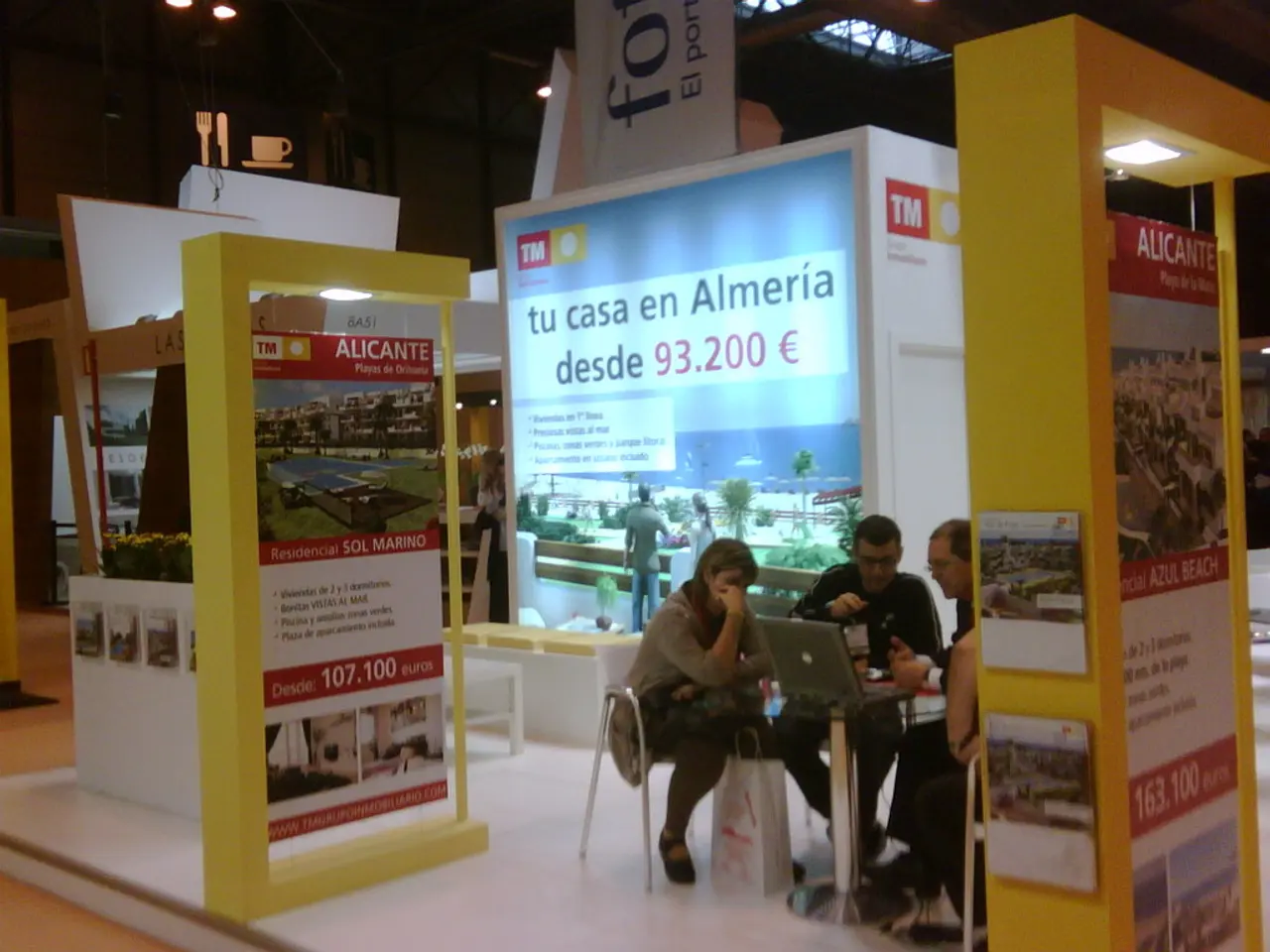Solar-powered vessel with a spacious deck: reinventing land transportation at sea
The Yuan Hai Kou, a cargo ship operated by COSCO SHIPPING Specialized Carriers, has made a groundbreaking entry into the maritime industry as the world's first vehicle transport ship to combine solar power and liquefied natural gas (LNG) dual-fuel propulsion. This innovative hybrid power system is a significant step towards reducing the environmental impact of shipping, traditionally a large source of carbon emissions.
Key aspects of the Yuan Hai Kou's significance and impact include:
Hybrid Propulsion System: The ship integrates LNG dual-fuel propulsion, which is cleaner than conventional heavy fuel oil, with an extensive solar photovoltaic system of 302.8 kW. This combination enables it to significantly cut fuel consumption and emissions.
Environmental Benefits: The solar panels generate about 410,000 kWh annually, which translates to saving approximately 111 tonnes of fuel and reducing 345.9 tonnes of CO2 emissions each year. This contributes to lowering the carbon footprint of maritime logistics and supports global decarbonization goals in shipping.
Operational Scale: At a length of about 200 meters and a gross tonnage of 68,252 tonnes, the Yuan Hai Kou is notably large for its class and demonstrates that sustainable technology can be effectively integrated at scale for commercial vehicle carrier operations.
Industry Influence: The vessel sets a precedent for COSCO and the global shipping industry by showcasing the viability of combining renewable energy sources with cleaner fuels to achieve greener shipping. Its adoption could inspire broader industry shifts towards dual-fuel and renewable energy-powered fleets, accelerating the adoption of sustainable maritime technologies.
In addition, the Yuan Hai Kou is equipped with advanced safety features such as thermal imaging cameras, automatic fire detection, a special ventilation system, and real-time vehicle position monitoring for fire protection. It also uses shore power during layovers in port, saving up to 21 tons of CO2 per day, and its hull improvements, such as special rudder blades and flow aids, increase its efficiency.
The Yuan Hai Kou's arrival in the Port of Piraeus was met with an official ceremony, emphasizing its importance for the decarbonization of maritime transport. Its PV system consists of over 500 special solar modules from manufacturer Longi, delivering a peak power of 302.8 kilowatts. With 12 vehicle decks, including 4 adjustable decks, the Yuan Hai Kou has a capacity of 7,000 vehicles.
The Yuan Hai Kou's onboard dedicated loading software records the position of each vehicle during loading, and its modules are designed for extreme marine conditions, with corrosion-resistant materials and reinforced seals against salt mist, vibrations, and humidity. The ship's PV system powers onboard lighting, communication, and auxiliary systems without fossil fuels, significantly reducing other pollutants such as nitrogen oxides, sulfur compounds, and particulate matter.
Furthermore, the Yuan Hai Kou complies with the "Digital Ship Delivery Guidelines" of the China Classification Society and the "Safety Technical Guidelines for the Transport of Vehicles with New Energies." Its CO2 emissions on a China-Europa voyage are reduced by approximately 2,100 tons due to its green technology.
In conclusion, the Yuan Hai Kou's pioneering use of solar power alongside LNG fuel significantly advances the maritime sector's efforts to reduce greenhouse gas emissions and reliance on fossil fuels, marking an important step in achieving more environmentally friendly and sustainable maritime transportation.
- As a result of its innovative hybrid power system, the Yuan Hai Kou, a vessel operated by COSCO SHIPPING Specialized Carriers, is making strides in environmental-science, as it combines cleaner LNG fuel with solar power.
- By implementing advanced technology such as solar photovoltaic systems and emission-reducing features, the Yuan Hai Kou, a key player in the industry, is forging a path for the financing of greener shipping fleets in the future.
- In the field of science, the Yuan Hai Kou's pioneering approach to sustainable technology in the maritime industry highlights the potential synergy between technology and environmental-science for a greener and more eco-friendly world.




